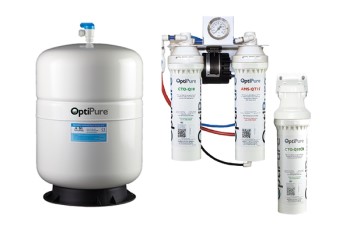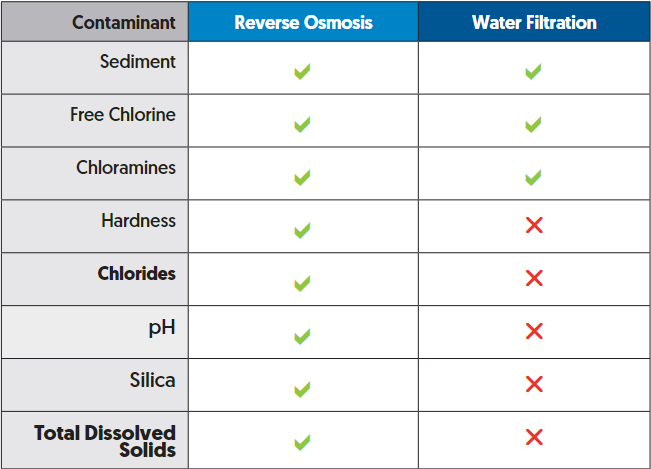Alto-Shaam
Solving the Challenges of Water Quality
When it comes to protecting your combi oven investment, it’s important to understand which water treatment system is best for your oven.

When using an oven with steaming capabilities like an Alto-Shaam Converge® or Prodigi™ combi oven, a steady source of purified water is crucial for a higher quality output. How is this water purified? A water treatment system from Alto-Shaam. These systems are required to not only produce a higher quality product but protect and extend the lifetime of the equipment.
Water quality is an issue that is constantly covered across the foodservice industry at conferences, trainings, and tradeshows. The challenge remains of finding better, more streamlined solutions for treating the water going into steam producing equipment.
Customers can conduct water quality tests, but when dealing with new construction, often the specifications for the job are written long before there is a building or faucet to grab the water from. In addition, municipalities are constantly changing how they treat water based on seasonality and the fluctuating quality of the water source.
What Is The Importance Of Water Quality?
Poor water quality is one of the most common and easily undetected root causes of downtime for commercial combi ovens. Sediments, minerals, chlorine, and chloramines found in tap water can quickly build up inside the oven, which can result in equipment breakdown over time. All these factors make purchasing a combination or steam oven daunting. Thankfully, there are solutions to properly treating water and caring for steam-production-based commercial equipment, including reverse osmosis and water filtration systems.
Here are the top benefits to choosing a reverse osmosis or a water filtration system for steam-producing ovens:
Improve Food Quality
Any oven that relies on steam requires filtered water to function properly. Some water sources are harder than others, which means the water contains more minerals like calcium and magnesium. Reverse osmosis systems improve food quality by preventing any chlorine odors or tastes from transferring to food. Water filtration systems can remove harsh water sources such as sediments, chlorine, and chloramines which provides great water control for higher food quality.
Eliminate Maintenance Costs
Water treatment systems further eliminate costs by mitigating costly water-related oven maintenance. The use of a reverse osmosis system will reduce the cost of maintenance associated with limescale buildup, corrosion and other water-related damage. Water treatment filters provide a less costly way of treating water by only focusing on the water quality and not the buildup corrosion. Operations become more efficient with no costly water-related maintenance required, directly impacting the overall reliability of the oven.
The Difference Between Reverse Osmosis And Water Filtration

Alto-Shaam offers both reverse osmosis and water filtration systems for Prodigi combi ovens and Converge multi-cook combi ovens to extend equipment lifetime and protect oven investment.
A more robust solution, reverse osmosis systems contain two water treatment filters, one reverse osmosis membrane and one mineral addition cartridge. The filtration system removes all sediments, chlorides, minerals and other total dissolved solids (TDS) from water. The system also removes chlorine and chloramines—corrosive disinfectants often added by public water treatment plants to minimize water-related diseases.
While they don’t cover as many water contaminants, water filtration systems still remove sediments, chlorine, and chloramines to ensure Alto-Shaam equipment is supplied with higher quality water and extend equipment lifetime.
Which System Is Right For You?
The first step to finding out which system is right for you is to evaluate your water quality. It is the responsibility of customer to verify that the incoming water supply at their location is tested and complies with Alto-Shaam's water quality standards.
Once the water quality has been determined and compared to Alto-Shaam's water quality standards, you can then choose the applicable water treatment system such as reverse osmosis or water filtration for with your oven purchase.
For more information on Alto-Shaam’s water treatment systems, please contact us.
